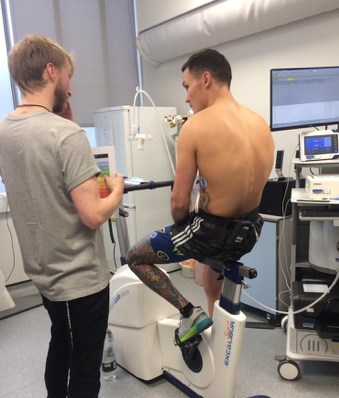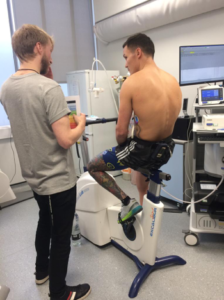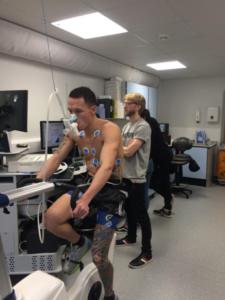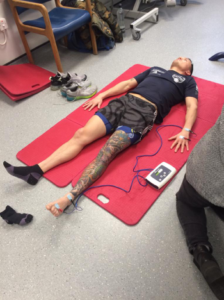BBSRC DTP PhD student Matthew Chadwick undertook a PIPS with the Human Performance Service in the Sport and Exercise Sciences Department of the University of Leeds, providing technical consultation and training to research teams. In case you wanted additional reasons to watch those cat videos on the internet, keep reading.
You might be familiar with research that came out last year assessing stress levels of spectators during football matches. While watching football might sound like a sedentary activity, the excitement of watching your favourite team win gave spectators the equivalent cardiovascular effect of a 90-minute fast-paced walk. In addition, a prolonged elevation in mood was also observed following a victory for your team, suggesting that there are physical and psychological benefits to watching a game (unless Leeds struggle to adapt to life in the Premier League this season). But did you know that this research was assisted by a BBSRC DTP student on his PIPS placement?
Matt Chadwick worked alongside Dr Andrea Utley at the Human Performance Service of the University of Leeds, in partnership with BetVictor, to investigate the physiological and psychological effects of watching football. To evaluate stress levels, Matt had to acquire the appropriate equipment and provide technical training so that the team could accurately measure heart rate and blood pressure during the matches. Matt also supervised the data collection process to ensure all recordings were accurate and adhered to strict quality control guidelines.
Whilst on his PIPS, Matt pursued involvement in several other ongoing projects to maximise his training opportunities:
“It varied from providing minor advice about a specific technical aspect to acquiring equipment to training the students who were assisting the project.”
Matt’s valuable experience and expertise with equipment was utilised in another project, this time in collaboration with a digital media company.
You have probably felt it too, the dreadful wait outside the room, the tense, stress-inducing atmosphere and students chattering, exchanging key nuggets of information about what questions might be in an exam. Stress prior to exams is a universal student experience that scars some people and is undoubtedly one of the reasons why people rejoice at the prospect of no more exams after their MSc degree. This project aimed to assess whether watching animal footage two hours before an exam would alleviate exam-related stress and whether this translated into an improvement in students’ exam performance.
To achieve this, 25 students were recruited to sit through a slide show of animal images and videos in a relaxed setting 90 minutes before the start of their exam. Matt helped develop the experimental design and set-up equipment and protocols to measure heart rate and blood pressure, as well as train students to operate the equipment and collect data for the study. Results showed a decline in anxiety as a result of watching animals before an exam and participants reported they felt “supported and valued by their school”, suggesting that, as we have all long suspected, watching animal videos supports wellbeing.
Whilst Matt’s PIPS only lasted 3 months, his contributions will have a long-lasting impact as the research team trained for this project will work on Dr Utley’s plan to refine animal-related images and videos for future trials, holding screenings 2 or 3 days before an exam. Watch this space!
In the end was Matt satisfied with his PIPS?
“It’s interesting to see how your results are presented and interpreted by commercial media. Regarding the other projects, as a massive sports fan meeting world class coaches and athletes never stops being exciting” Matt stated.
You can follow activity from the Sport and Exercise Sciences department at the University of Leeds on Twitter here @SpExUoL
Matt conducting a physical assessment of World Champion boxer (and 2020 Leeds Sportsman of the Year) Josh Warrington to identify areas of performance that could be improved and determine optimal training strategies with Josh’s coach.





